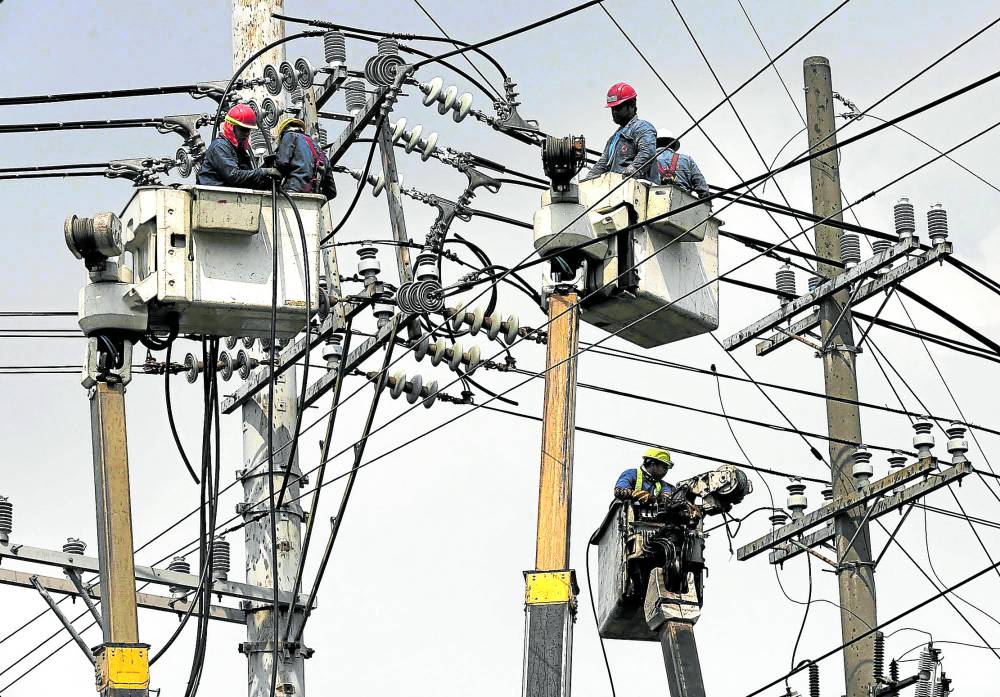
(FILE) CABLE WORK Linemen replace cables on electric posts on UN Avenue in Manila in this photo taken on June 19. —RICHARD A. REYES
MANILA, Philippines — Within the Luzon electrical grid, at least 12 “yellow” alerts are projected for this year, with no “red” alerts in sight, the Department of Energy (DOE) said on Wednesday.
The yellow alerts, according to DOE Undersecretary Cristina Guevarra:
- 1 in March
- 2 in April
- 7 in May
- 2 in June
“Marami kasi tayong challenges sa energy sector sa supply side,” she said in a public briefing.
(We have many challenges in the energy sector in the supply side.)
A yellow alert is raised when energy reserves are insufficient to cover the largest running generating unit at the time but does not necessarily lead to outages.
Among the causes of low power supply are the unfinished projects on power generation, transmission, and energy facilities that were supposed to be completed in 2022, Guevarra said.
Moreover, the Malampaya power plant will likewise undergo scheduled maintenance.
High fuel prices also contribute to the low power supply in the coming months.
However, despite this, the DOE is not seeing a red alert be raised even on forecast peak demand, which is expected to be in May at 13,125 megawatts.
“Sa forecast peak demand na ito, wala kaming nakikitang red alert sa Luzon grid sa 2023,” Guevarra said.
Red alerts, however, may still be possible should there be unforeseen circumstances involving power plants or transmission facilities.
A grid is placed on red alert when the supply-to-demand balance further worsens, which can lead to rotating power interruptions.
RELATED STORIES
DOE warns of thin power reserves
Red alert raised in the Visayas grid